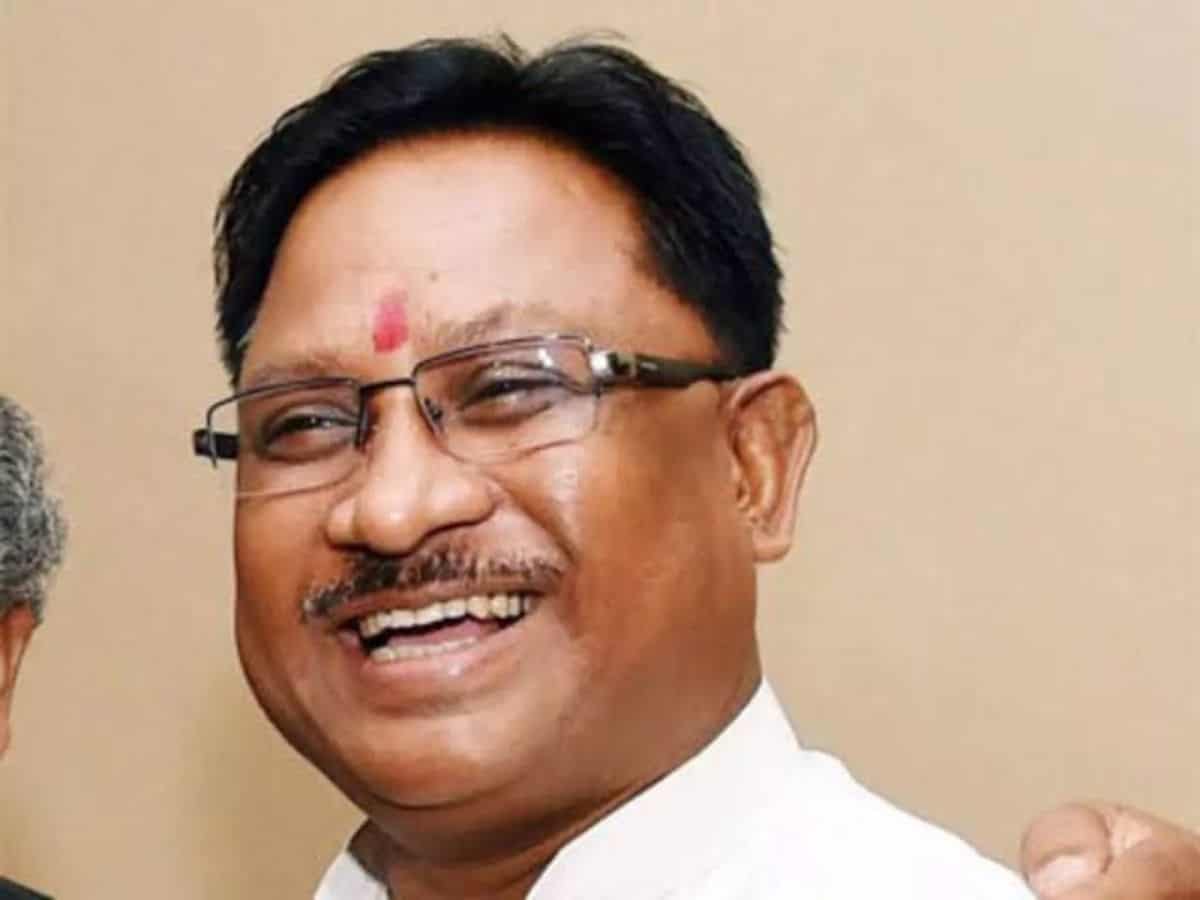
The Bharatiya Janata Party’s (BJP) high command has decided to instate Vishnu Deo Sai, a leader from the tribal community as the next chief minister of Chhattisgarh.
Incidentally, addressing a poll rally in the Kunkuri constituency last month, Union Home Minister and senior BJP leader Amit Shah had urged voters to elect Sai, promising to make the latter a “big man” if the party comes back to power in the state.
The BJP won 54 seats in the 90-member Assembly in the recently held polls, unseating the Bhupesh Baghel-led Congress government. The Congress ended with 35 seats, down from 68 it won in 2018.
The development took place after the saffron party’s legislative meeting with all 54 MLAs in attendance, held at Kushabhau Thakre Parisar, the party’s state headquarters here.
Three observers, Union ministers Arjun Munda and Sarbananda Sonowal and party general secretary Dushyant Kumar Gautam, were also present along with the party’s in charge for Chhattisgarh Om Mathur, Union Minister Mansukh Mandaviya and co-in-charge for the state Nitin Nabin.
The BJP, which had suffered a huge setback in tribal-dominated seats in 2018, put up a good show this time, winning 17 of the 29 seats reserved for Scheduled Tribe (ST) candidates.
The saffron outfit won all 14 assembly segments in the tribal-dominated Surguja region and eight out of the 12 seats in another Adivasi belt Bastar.
The BJP’s comprehensive win in the two tribal turfs contributed to its resounding victory in the Assembly polls and return to power in the state after a gap of five years.
Vishnu Deo Sai’s story
Sai started his political career as a village sarpanch and rose to become a Union minister and multiple-time Lok Sabha MP besides getting important organisational roles.
The newly-elected MLA from Jashpur district in the Surguja region perfectly fits in the BJP’s scheme of things since Adivasis account for nearly 32 per cent of the state’s population and are the second most dominant social group after OBCs.
Despite inheriting a rich political legacy of his family and holding key portfolios when he was a Union minister, the 59-year-old tribal leader is known for his humility, down to earth nature, dedication to work and determination to achieve goals.
Sai has headed the BJP’s Chhattisgarh unit three times, displaying the central leadership’s faith in his organisational skills.
Starting his political career as the sarpanch of an obscure village, Sai rose through the ranks and became a member of Prime Minister Narendra Modi’s first Council of Ministers after the BJP formed its full majority government at the Centre in 2014.
Though he hails from a farming family based in a small village, Bagia, in the tribal-dominated Jashpur district, politics runs in the blood of the BJP leader.
His grandfather late Budhnath Sai was a nominated MLA from 1947 to 1952. His ‘bade pitaji’ (elder brother of his father) late Narhari Prasad Sai was a member of the Jan Sangh (BJP’s predecessor) and served as a two-term MLA (1962-67 and 1972-77) and was elected as an MP (1977-79) and served as a Minister of State in the Janata Party government.
Another elder brother of his father, late Kedarnath Sai, was also a Jan Sangh member and served as MLA from Tapkara (1967-72).
Vishnu Deo Sai studied in a government school in Kunkuri and went to Ambikapur for graduation but quit studies midway and returned to his village in 1988. In 1989, he was elected as a ‘panch’ of Bagia village panchayat and next year became the sarpanch unopposed.
It is said it was BJP stalwart late Dilip Singh Judev who encouraged him to enter electoral politics in 1990. In the same year, Sai was elected as MLA for the first time on a BJP ticket from Tapkara (in Jashpur district) in undivided Madhya Pradesh. He retained the seat in the 1993 assembly polls.
In 1998, he unsuccessfully contested the Assembly polls from the adjoining Pathalgaon seat. Later, he was elected as MP from Raigarh Lok Sabha constituency four times in a row – 1999, 2004, 2009 and 2014.
Though the BJP fielded him in the 2003 and 2008 Assembly elections from Pathalgaon in Chhattisgarh, which came into existence as a separate state on November 1, 2000, he lost on both occasions.
After the BJP formed its government at the Centre in 2014 under the leadership of PM Modi, Sai was made Minister of State for Steel and Mines.
He was among the then 10 sitting BJP MPs in Chhattisgarh who were denied tickets for the 2019 Lok Sabha polls.
The tribal politician served as the BJP’s Chhattisgarh chief from 2006 to 2010 and again from January-August 2014.
After the BJP lost power in the state in 2018, he was again given the responsibility to lead the party in Chhattisgarh in 2020.
He was replaced with Arun Sao, an OBC leader, in 2022, just a year ahead of the Assembly polls.
Ahead of the polls in November this year, Sai was named a member of the BJP national executive in July. He was fielded from Kunkuri (Jashpur district) in the elections which he won by defeating Congress’ sitting MLA UD Minj by a margin of 25,541 votes.
(With excerpts from PTI)



